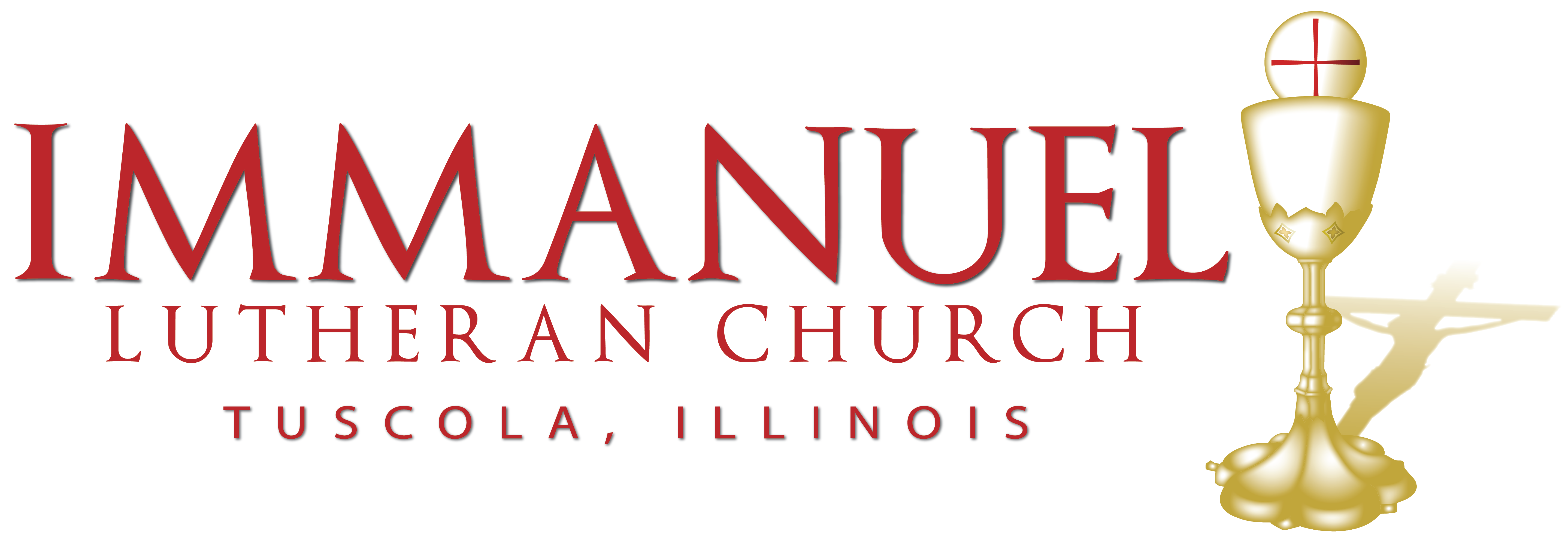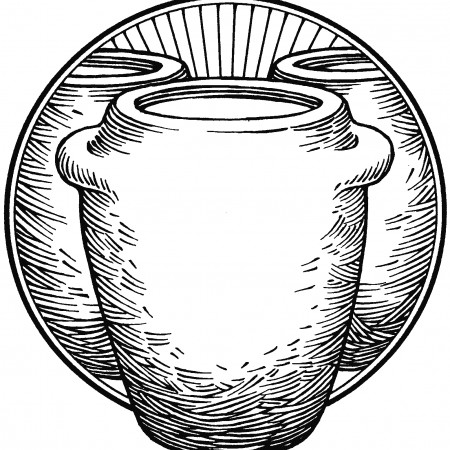The Second Sunday after the Epiphany
John 2:1–11
+ IN NOMINE IESU +
It’s a strange interchange. Mary, as mothers are wont to do, makes a statement. But it’s more than a statement. It’s a command. She isn’t just giving Jesus information. She wants Him to do something. “They have no wine,” in mother-speak is, “Get them some wine.” Just as, “The garbage is full” means “take out the garbage,” or “Your room is messy and your bed isn’t made,” means “Clean your room and make your bed.”
And Jesus, being a perfect son understand this, and as sons are wont to do, tests His mother for some deeper reason behind her request. “What does this have to do with me? My hour has not yet come.” Jesus’ hour is the hour of His Passion: His suffering, crucifixion, and death for the sins of the world. So, Jesus is asking His mother if she really knows what she’s asking Him to do and if she knows what providing wine at a wedding has to do with His sacrifice on the cross for the sins of the world, for the life of the world.
And Mary, as mothers are also wont to do, didn’t respond and probably gave her son a look that indicated full knowledge of what she was asking and full knowledge of how it pertained to His Passion, she turned to the servants and said to them, “Do what ever He tells you.” For Mary knows exactly what having no wine at a wedding feast means, and what it would mean that Jesus provide it has to do with Him and His hour.
So what does it mean? Why was having wine at the wedding feast so important? Wine, as the psalmist wrote, makes glad the hearts of men. It makes man’s heart glad because it was a sign of divine blessing, as the psalmist wrote elsewhere, “my cup runneth over.” But it is also a sign of new life. For it begins as plain grape juice, and as it goes through the process of fermentation, during which time it is sour, in the end it becomes something far superior than as it started. It becomes a vintage that brings joy and gladness.
To have no wine at the wedding feast, then, was not to have the blessing of God. To have no wine is to have the bride and groom about to begin a new life together without the sign that blesses this new life. To have no wine is in essence not to have God present at the wedding. For only God can bless and give new life as the author and giver of them both.
Mary knows that not having wine is not to have the God and His blessing of new life. And she knows that this isn’t true in the case of this wedding. She knows that God is present, in the flesh. And that He can bless and give new life. And she knows that this is precisely why her Son has come into this world. She learned it from Gabriel, from the Shepherds and the Magi, from Simeon and Anna. She knows that Jesus is born to save His people from their sins so that they would have new life in Him, and that they would have it to the full. And this has everything to do with His hour, with His Passion, His suffering and crucifixion, His death and resurrection. He gives new life in the forgiveness of sins.
This is why it is the first of His signs that revealed His glory. It is the first of the signs that Jesus did that revealed He was God. For only God can bless the wedding through wine. And He did it with a superabundance of the choicest vintage there ever was.
But why were they out of wine? Could the bridegroom really have miscalculated that much? No, it is probably more simple and probably a bit more treacherous. It’s probably that he thought he could cut corners. That he could do this wedding gig on the cheap. And the best place to do it is the wine because it’s expensive. The problem of course is that it is the sign of God’s blessing and of the blessing of new life, the new life they are beginning in marriage. It is the sign that He is present and present with His blessings. So they had enough, just enough, to say that at least God was part of it.
How often is this the case in our own marriages? Where everything is booked first—the reception hall, the DJ, the caterer, etc.—and then we see if the church and the pastor are available. And if they aren’t, then can always get somewhere and someone else because it doesn’t really matter.
How often is this the case as we live out our lives in marriage? That continually receiving the blessing of God that He continues to give through wine, through His Word and Sacrament, is an after thought and not primary to our lives together in holy marriage, so that we resolve along with Joshua and his family, “As for me and my house, we will serve the Lord.” This can only be done by continually be served by Him in the Divine Service.
How often is it the case that when we argue, when we have quarrels, that we turn to God in prayer, that we seek guidance from the holy Scriptures, and even our pastors? And when we do, is it the first place we turn, the first step among many, or is it the last ditch effort when every other avenue has been exhausted, if it is sought at all?
We look around and wonder what has happened to the estate of marriage. How can it be that same-sex marriage, living together before and without marriage, doing thing that are reserved for the marriage bed outside of marriage itself has become so accepted and so widespread? It begins with us. It begins with how we view it and how we live it in our own homes. It begins with how the church deals with it; how Christians deal with it in their own lives. For as St. Paul wrote, “They (the world, the unbelievers) know God’s righteous decree that those who practice such things deserve to die, they not only do them but give approval to those who practice them” (Rom 1:32). Christians have given a pass to the outside world on these issues because we know that it if we don’t, it condemns us for our similar sins. “For in passing judgment on another you condemn yourself, because you the judge, practice the very same things” (Rom 2:1).
This is meant to lead us to repentance, to confess our sins, and to receive absolution, that is forgiveness, for them, and then lead a new life in this forgiveness toward each other. To live out our marriages as God intended.
Jesus came to give life, and to give to the full, to pour out God’s blessings upon us. And so He did at the wedding of Cana. He covered the bridegroom’s sin for not having enough wine for the entire feast, and He covered the bride’s shame in running out. He did it by providing it on their behalf. For fulfilling their duty which they failed to do. He covered their sin and shame with His work. And this is what He has done for you on the cross. He gave His life for yours, so that He could present you, His bride, holy and immaculate, without stain or spot of sin. And you, submit yourselves to this, so that you may have new life in Him.
Thus, you are to live toward one another. Husbands: love your wives as Christ loved the church, and give your life for her. In other words, show your love, demonstrate your love and devotion to her. For she know that you love her, but she doesn’t always feel like you do because you don’t always show it the way she needs.
And wives respect your husbands as the Church respects and submits to Christ. Your husbands aren’t as dumb as you think they are. They want to lead, to protect, and they are willing to die for you. Respect them in word and deed. Listen to their ideas. Give them credit for the good they bring and do for you and your family.
And when you fail in this, and you will fail, confess to each other and to God. Forgive each other and receive the forgiveness that God bestows through His Word preached and the cup of blessing that gives you the blood poured out for you. For this is the risen and living body and blood of Christ. It takes away your sins, your failure to love and to respect, and it blesses you with new life, not only here in time, but in eternity also. So that you may once again resolve “As for me and my house, we will serve the Lord.” And this is done by husbands loving their wives, and wives respecting their husbands. Amen.



One Comment
another appropriate and timely reminder that there is more to the story than what is seen with the eye and heard with the ears…..There is always God and His creation, God and His Son and God and His Holy Spirit for the good, then there is the world.
In todays multi-media barrage; sanctuary is only found in the Church and in communion where we are removed from the world and for a while, forgiven, share and hopefully strengthened to reengage before we return to HIM here and someday in the next phase of our eternity.